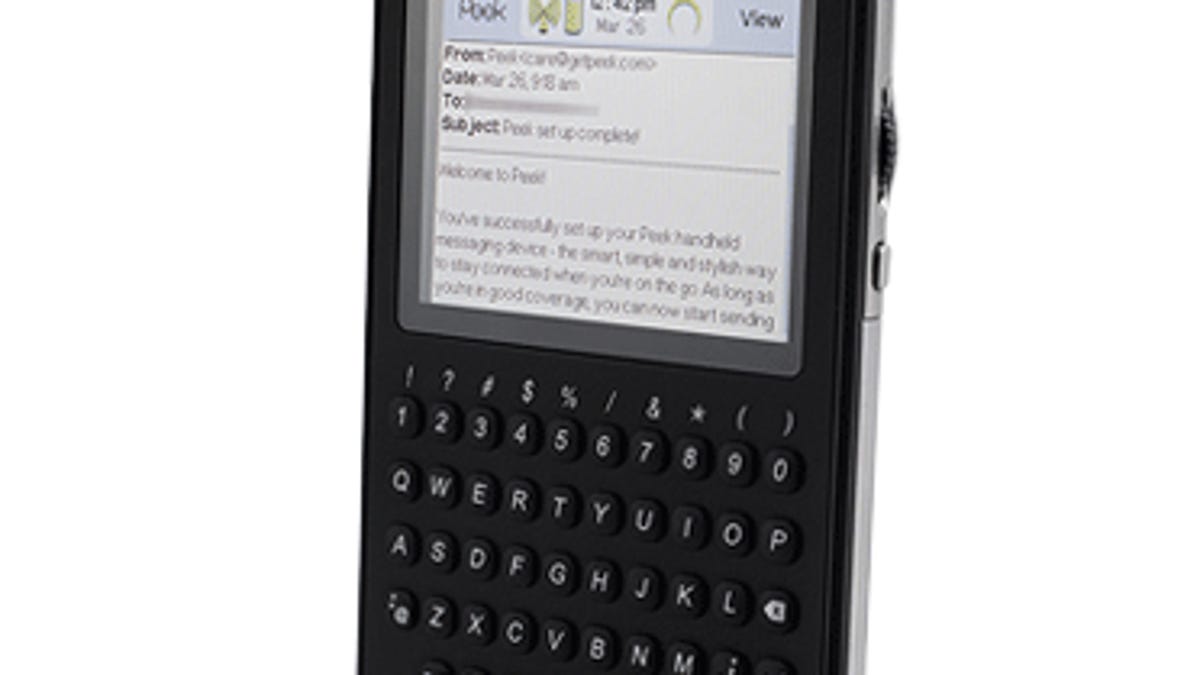Peek shuts down quirky e-mail, Twitter-only handhelds
A tiny fleet of e-mail-, messaging-, and Twitter-only devices crumbles in the face of good ol' American multitasking.

Hey, remember the Peek, that handheld device from 2008 that supplied e-mail, and only e-mail, for $20 a month?
Yeah, didn't think so. After supporting customers on the original Peek, the marginally more useful Peek Pronto, and the Twitter Peek since then, Peek and its CEO Amol Sarva are shutting things down.
This does, unfortunately, affect the "handful" of remaining users who bought a lifetime service on a device that's still ticking.
Making matters worse for the small contingent of loyalists is the issue that not all of them received notice, according to Engadget.
As for Peek's plans to offer a replacement sometime down the line, they're nil. The company has wisely retreated from hardware, and is now fully integrated in the mobile software side for businesses.
However, if hackers want to turn any remaining hardware into their test beds, Sarva is passing them out, The Verge reported.

